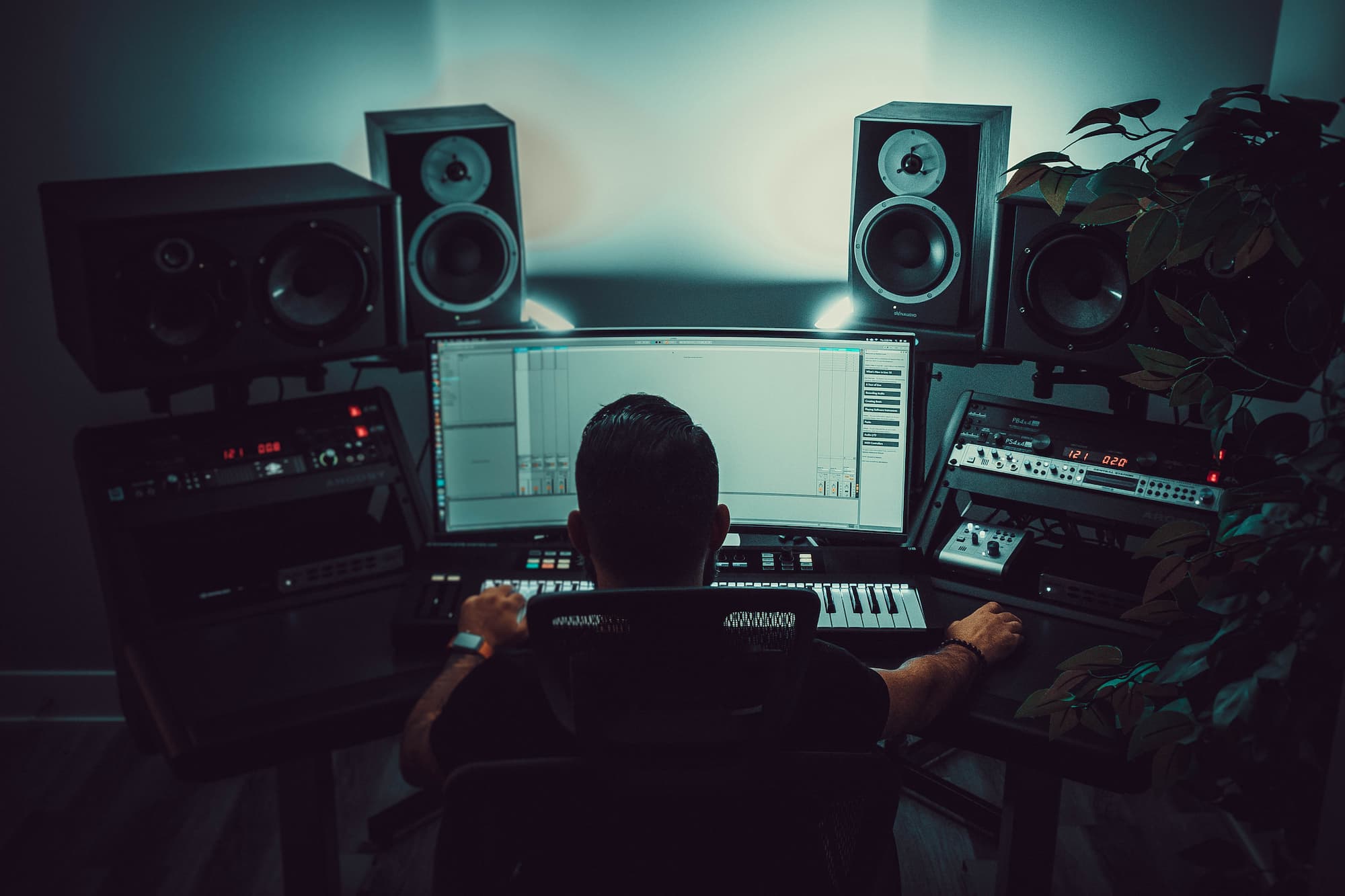Recording studios are a place where sound is captured during a recording. If you want to record your band playing in the studio, the sound engineer records all of the instruments individually and blends them together with a computer program during post-production. A typical producer or artist who hires a studio works directly with sound engineers [more on that later] to produce [or have produced for them] their music. In most cases an artist will be working in multiple studios around the world while they’re putting out new material, but when it comes down to it, they’ll probably spend more time in one place than another. For example, Radiohead will probably stress over every second of every minute at their home studio in Oxfordshire, but when they finish a track they feel satisfied with and head out on tour, they’ll spend most of their time at live venues and smaller studios all over the world.
(Note: There’s a bunch more to the process… but I’m trying to keep this post short. If you’d like some extra reading on how music is recorded, check out this article I wrote that covers it in more depth.)
What do recording studio owners do?
The owner of a recording studio is responsible for managing business transactions between clients (artists/producers) and his team of engineers [see below]. A lot of the work being done in a studio will never be seen by an artist – i.e., soundproofing walls or designing sound-sensitive computer programs. This means that the owner will typically be working directly with artists and engineers to plan out studio sessions, book time for musicians, set up payment plans, ensure that his team has all of the necessary materials needed to produce a song or record an artist’s voice, etc.
(Note: For more on what it takes to run a successful recording studio business click here .)
What do sound engineers do?
The role of the sound engineer is the most technical position in any recording studio. The individual responsible for capturing sounds during a session has likely spent years mastering their equipment and practicing their engineering skills. “Sound engineering is not just about placing microphones properly… but also about understanding how certain sounds need to be ‘treated’ in order to get the best from them… Engineers have to know how an instrument should sound, and have all of the equipment required to get it to sound that way”. Engineers also handle communication between bands and owners. They record what a musician needs, no more and no less. It’s their job to ensure that a studio session goes as smoothly as possible – if they’re doing this well, an artist will be able to relax knowing that they’re in good hands.
What does a recording studio offer?
A recording studio offers musicians three things: space (for instruments/voices/etc.), time (to help artists focus on creating music), and guidance (in post-production). Because studioshire hire individual engineers to work with different bands, the same studio won’t offer all of these services. Sometimes studios will have a lounge or a kitchen for musicians to relax in during long studio sessions. They may also have a music room where artists can take breaks from recording and play around with new songs they’ve written. As far as post-production goes, this is usually kept separate from parties who record their instruments or voices at the studio – that way an engineer can focus on getting the best sound possible from an artist.
What does it cost?
Recording time is typically rented by the hour – but there are often special rates for multiple-hour sessions, multiple days booked consecutively, or other packages an artist might need/want.In order to start recording, you have to book a studio time slot. There are two ways that studios can do this.
Albums
A band may purchase a block of several days – or even weeks if they’re going all out – in which engineers will be available for full-time usage of the studio. Engineers usually work on an hourly basis during these sessions. In some cases bands will record with as many as three separate engineers over the course of a few days/weeks+shipping time from one engineer to another. These guys typically show up with their own equipment and set it up themselves… making things go by faster at each session and saving the band the cost of setting everything up themselves (the studio will have the needed equipment already!)
Demos/EPs
Artists who are unsure of how long their music will require may choose to book individual hours with engineers. For example, a band might make an agreement with an engineer for 200$/hour, or 100$ every half-hour. The band is then allowed to come in anytime during that period and record as much as they want.
